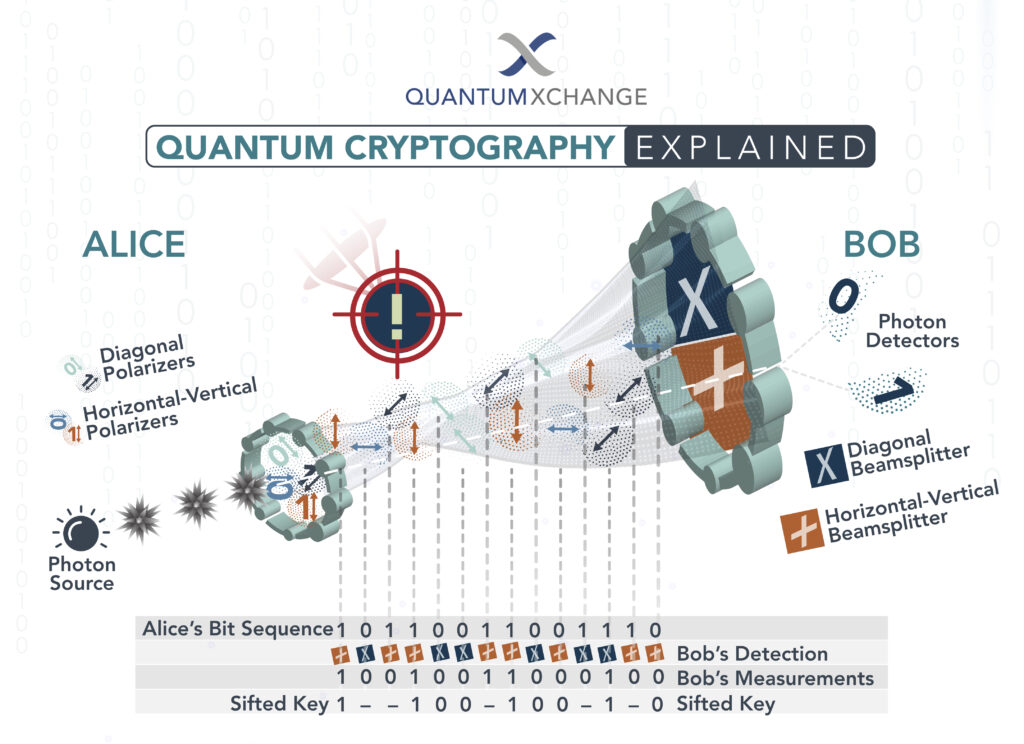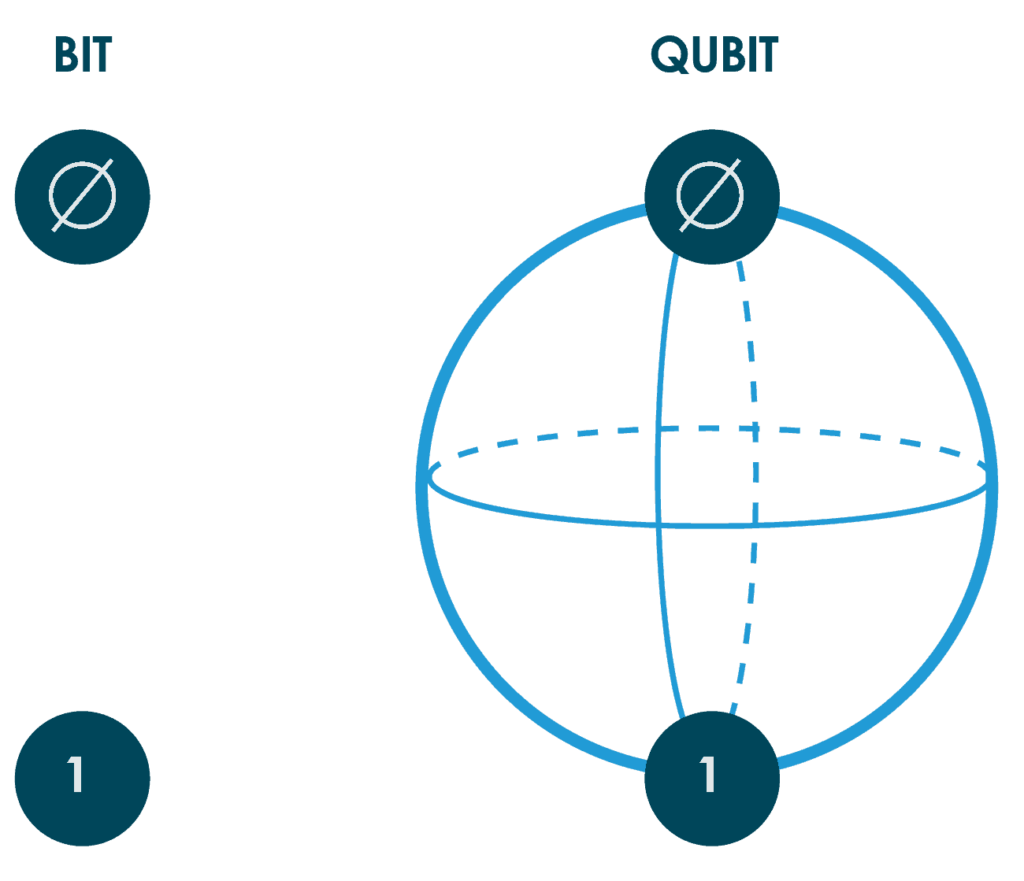In today’s digital age, cryptography has become an essential part of our daily lives, ensuring secure communication and protecting sensitive information. However, with the rise of quantum computing, there is a growing concern that traditional cryptographic methods may become obsolete. Quantum computing is a revolutionary technology that has the potential to solve certain problems much faster than classical computers. This makes it a double-edged sword, as it can also break the encryption algorithms that protect our data.
The prospect of quantum computing breaking conventional cryptography raises questions about the future of cybersecurity. It is a topic that has been extensively debated in academic and industry circles, as the implications of this technology are far-reaching. In this article, we will explore what quantum computing is, how it could break traditional cryptographic methods, and what the future of cybersecurity might look like in a world where quantum computing is prevalent.
When quantum computing makes cryptography obsolete, the security of the data transmitted over the Internet will be drastically affected. Quantum computing is much faster than current computing technologies, and the encryption algorithms used to protect data will be easily broken. As a result, sensitive data like financial transactions, medical records, and communication will be vulnerable to malicious attacks.

What is Quantum Computing and Cryptography?
Quantum computing is the use of quantum-mechanical phenomena such as superposition and entanglement to perform computation. Cryptography is the practice and study of techniques for secure communication in the presence of third parties. Both quantum computing and cryptography are integral parts of modern technology, and they are used to protect and secure data.
What will Happen When Quantum Computing Makes Cryptography Obsolete?
Increase in Security
When quantum computing makes cryptography obsolete, it will lead to an increase in security. The quantum computing algorithms used to secure data will be more powerful and secure than the current cryptography methods. This will make it harder for hackers to break into systems, and it will also make it more difficult for data to be intercepted or stolen.
In addition to this, quantum computing will also enable the development of new encryption algorithms. These algorithms will be more secure and reliable than current methods, and they will be able to protect data from even the most sophisticated attacks.
New Opportunities
When quantum computing makes cryptography obsolete, it will open up new opportunities for data security. For example, quantum cryptography could be used to create a secure connection between two parties, even if the connection is being monitored by a third party. This would allow secure communication between two parties, even if the connection is being monitored.
In addition, quantum computing could also be used to create more secure digital signatures. These signatures would be more secure than current methods, and they would be able to authenticate transactions more securely. This would make it harder for hackers to break into systems and steal data.
Lastly, quantum computing could also be used to create new algorithms that could be used to protect data from malicious actors. These algorithms would be more secure than current methods, and they would be able to protect data from even the most sophisticated attacks.
Potential Challenges
When quantum computing makes cryptography obsolete, there may be some challenges that need to be addressed. For example, quantum computing is still in its early stages, and it is not yet known how secure the algorithms used in quantum computing are. Additionally, there may be some challenges associated with implementing quantum computing in existing systems.
In addition, there may be some challenges associated with creating secure digital signatures with quantum computing. It is not yet known how secure these signatures will be, and it may take some time to create a secure signature. Finally, there may be some challenges associated with the implementation of quantum computing in existing systems.
Conclusion
When quantum computing makes cryptography obsolete, it will lead to an increase in security and create new opportunities for data security. However, there may be some challenges associated with the implementation of quantum computing in existing systems. It is important to understand these challenges and to work towards solutions that will ensure secure data protection.
Frequently Asked Questions – What will happen when quantum computing makes cryptography obsolete?
Quantum computing has the potential to revolutionize the way we use technology. It promises to bring greater speed, security, and accuracy to everything from financial transactions to medical research. But with the potential of quantum computing comes a potential risk: the possibility that it could make cryptography, the foundation of modern-day security, obsolete.
What is cryptography?
Cryptography is a type of security system that encodes information using mathematical algorithms. This technique is used to protect data from unauthorized access and to ensure that the information remains confidential. Cryptography can be used for a variety of purposes, including encrypting data and verifying the integrity of digital signatures.
Cryptography is used in a variety of applications, from banking and e-commerce transactions to military communications. It is also used to protect data stored on computers, networks, and other digital devices. Cryptography is essential for ensuring the privacy and security of data in the digital age.
How is quantum computing different from classical computing?
Quantum computing is based on the principles of quantum mechanics, which describe the behavior of matter and energy at the atomic and subatomic level. In classical computing, information is represented as a series of binary digits (bits). In quantum computing, information is represented using quantum bits, or qubits. Unlike classical bits, qubits can exist in multiple states simultaneously, allowing for more efficient and powerful calculations.
Quantum computers are much faster than classical computers and can solve complex problems in a fraction of the time. They can also process large amounts of data simultaneously and are capable of finding solutions to problems that are too difficult for classical computers to solve.
How could quantum computing make cryptography obsolete?
Quantum computing has the potential to break through the security protocols used for cryptography. This is because quantum computers are able to solve complex problems at a much faster rate than classical computers. As a result, quantum computers could be used to break through the encryption algorithms that are currently used to protect sensitive data.
In addition, quantum computers could be used to generate extremely large prime numbers, which are used as the basis of many encryption algorithms. This would make it possible to crack the codes used to protect data more quickly than ever before.
What would happen if cryptography was made obsolete?
If cryptography was made obsolete by quantum computing, it would have a major impact on the security of digital information. Without the protection of encryption algorithms, data would be vulnerable to unauthorized access and tampering. This could have serious implications for everything from financial transactions to military communications.
In addition, without the security provided by cryptography, digital devices would be vulnerable to attack. This could lead to the theft of data and the disruption of services, as well as the potential for financial losses and other damages.
What steps can be taken to prevent quantum computing from making cryptography obsolete?
To mitigate the risk of quantum computing making cryptography obsolete, organizations should consider implementing quantum-resistant encryption algorithms. These algorithms are designed to be resistant to the powerful processing capabilities of quantum computers. In addition, organizations should also consider implementing other security measures, such as multi-factor authentication, to further protect their data.
Organizations should also stay up to date on the latest developments in quantum computing and invest in security solutions that are designed to protect against the potential threat of quantum computing. By taking these steps, organizations can ensure that their data remains secure in the face of the potential threat of quantum computing.

In conclusion, the rise of quantum computing presents a unique challenge to the world of cryptography. As the technology advances, it is only a matter of time before quantum computers are able to break the encryption codes that currently protect our sensitive data. This could have far-reaching consequences for industries such as finance, healthcare, and government, which rely heavily on secure communication and data storage. However, it is important to note that the development of quantum-resistant cryptography is already underway, and there is hope that a solution will be found before the threat becomes too great.
As with any technological advancement, there are both risks and opportunities associated with the rise of quantum computing. While the potential for increased security breaches is certainly cause for concern, there is also the possibility of new breakthroughs in fields such as medicine and energy. As we continue to explore the possibilities of this emerging technology, it is important to approach it with both caution and curiosity, ensuring that we are prepared for the changes that are sure to come. Ultimately, the future of cryptography in the age of quantum computing remains uncertain, but one thing is clear: we must be ready to adapt and evolve in order to stay ahead of the curve.



